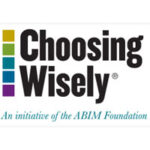Volume 36 Number 5 | October 2022
Muneeza Esani, PhD, MPH, MHA, MT(ASCP), ASCLS Choosing Wisely Committee


The committee recently submitted the following additional recommendations to ABIM Foundation for publication:
- Do not prescribe immune suppressive agents for suspected autoimmune hepatitis (AIH) without first excluding hepatotropic virus infections (e.g., viral hepatitis A, B, and C). Viral hepatitis may mimic AIH, both serologically and histologically, features that may resolve with direct-acting antiviral (DAA) treatment.
- Do not test for influenza unless the patient is symptomatic, and the result will influence clinical management and decision making.
- Do not employ a specific direct oral anticoagulant (DOAC) reversal agent without identifying the DOAC and estimating its plasma concentration.
The ASCLS Choosing Wisely committee meets quarterly, and reviews recommendations authored by its members as well as those that are submitted by other members of the laboratory science community. The following recommendations are in the beginning stages of peer review and will be submitted to the ASCLS BOD for approval next fall:
- Do not transfuse patients with Sickle Cell Disease (SCD) without knowing the patients’ phenotype and genotype and in conjunction with a genotype matching protocol.
- Do not use SARS-CoV-2 antibody testing to establish the presence or absence of acute SARS-CoV-2 infection.
- Do not order a single test for lupus anticoagulant (LA) testing. Order both the dilute Russell Viper venom test (DRVVT) and an LA-sensitive activated partial thromboplastin time (PTT) test.
- Do not order IgA Isotypes for anticardiolipin (aCL) and antibeta-2-glycoprotein-1 (aB2-GP1) antiphospholipid (aPL) antibody testing, instead order the IgG and IgM isotypes.
The ASCLS Choosing Wisely committee invites all members of ASCLS to submit recommendations, particularly those who are currently working in clinical laboratories and are questioning clinical practices or observing issues with test utilization, practice guidelines, etc. If you are wondering about why a lab test is ordered more often than necessary or why the clinicians at your organization are not following a published diagnostic algorithm, this may be an issue that you can bring to our attention.
Please send your recommendations with a brief justification to choosingwisely@ascls.org. The ASCLS Choosing Wisely Committee members will review the submissions and will make the necessary edits so the recommendation can be submitted for peer review. This process will allow all laboratorians to participate in formulating guidelines regarding appropriate use of laboratory tests and directly contribute to patient care.
Muneeza Esani is Associate Professor, Associate Chair of CLS Education and Director of Undergraduate Programs in the Department of Clinical Laboratory Science and School of Health Professions at the University of Texas Medical Branch in Galveston, Texas.